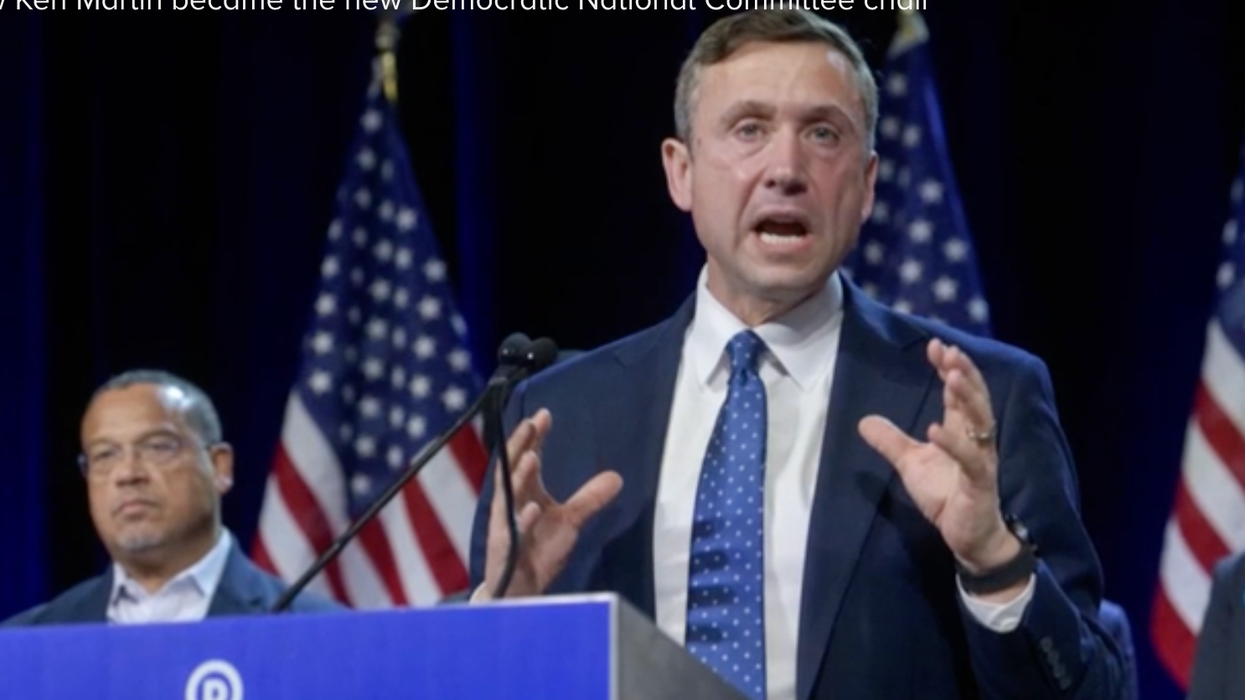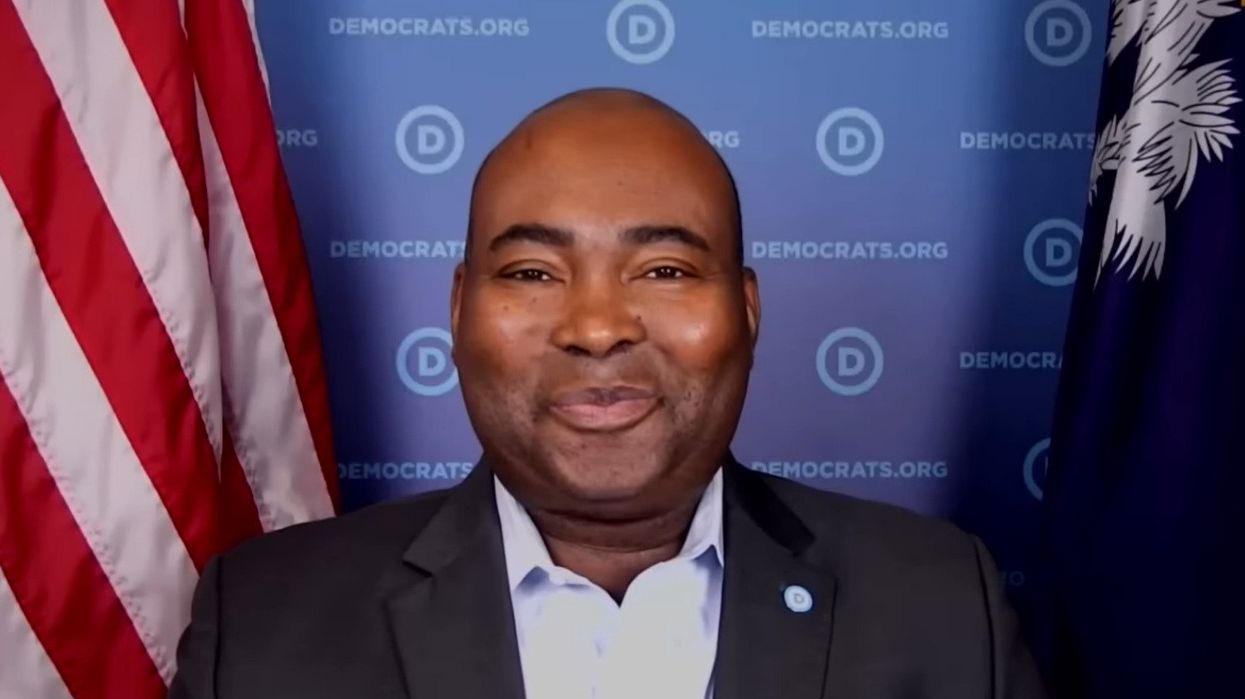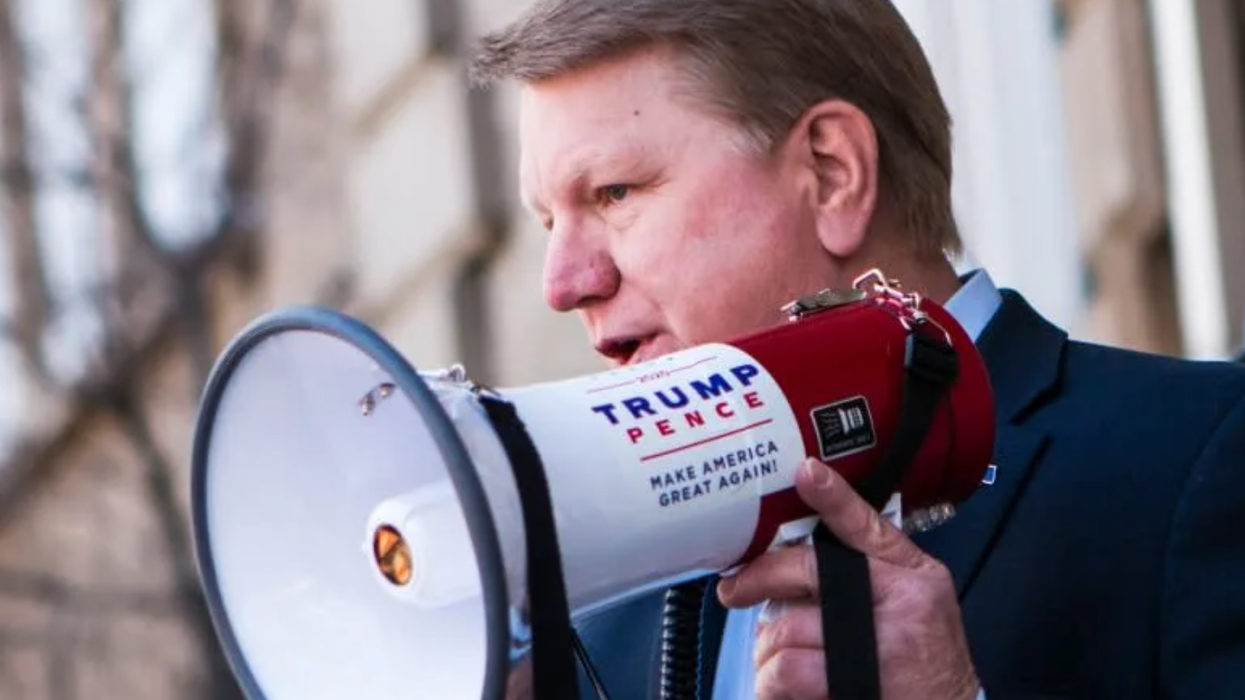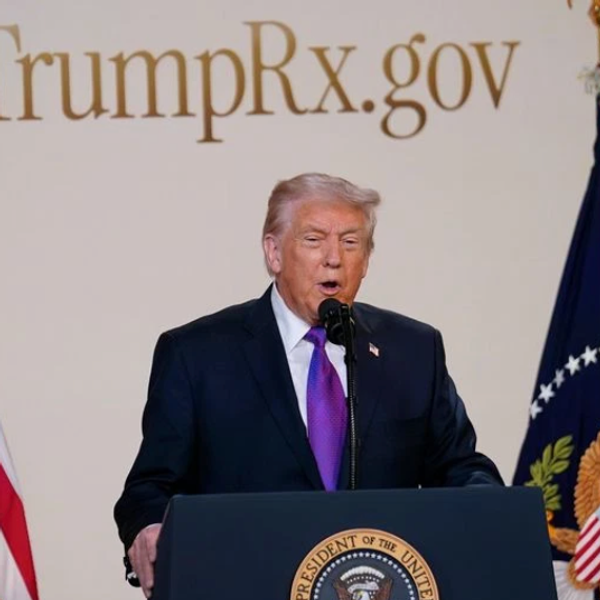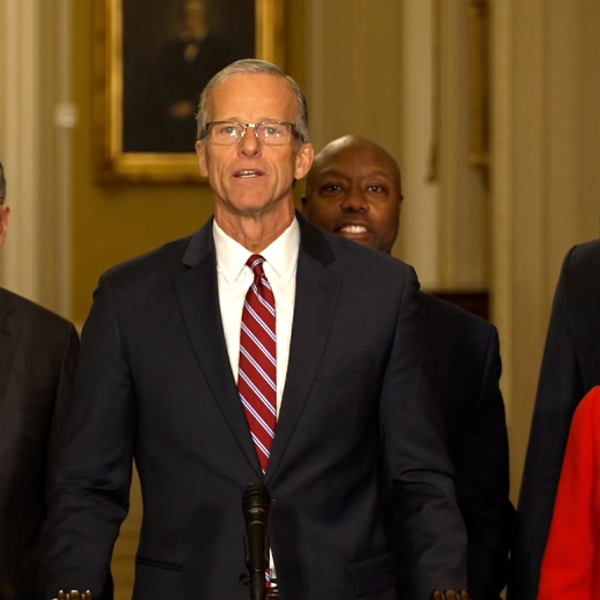New DNC Chair: Democrats Are 'Alive And Kicking' And Ready To Fight
Newly elected Democratic National Committee Chair Ken Martin appeared on MSNBC’s “The Rachel Maddow Show” on Monday to discuss what Democrats can do, as Maddow put it, “to mitigate some of the harm that’s being caused” by Donald Trump and his administration.
Martin pointed to the Democrats’ swift and vocal response earlier Monday to Trump henchman Elon Musk’s power grab and dismantling of the U.S. Agency for International Development, known as USAID, which helps foreign countries battle hunger, poverty, and epidemics. Democratic members of Congress held a press conference at the agency’s headquarters and joined protesters trying to gain access to the building.
Although Democrats don’t currently control any branch of government, House Minority Leader Hakeem Jeffries laid out a 10-point plan to combat Republicans every step of the way.
Martin said similar actions and communications will be a key strategy, pitching a “war room” to combat the tidal wave of misinformation Trump and his minions are unleashing thanks to the right’s growing control over social media platforms.
“I think for the Democratic Party, these first 100 days, we have to do a few things,” he said. “One is, we have to stand up the war room, which is to make sure we’re stamping out the misinformation and disinformation campaign of the Republican Party and that we are also at the same time defining ourselves.”
He stressed that Democrats are not only “not dead” but are principled and ready to fight the MAGA movement.
“I remember in 2016 someone saying that Republicans are shameless, but the Democrats are spineless. And so it’s important for folks to know we have a spine,” Martin said. “We’re not dead as a party; we’re still alive and kicking, and we’re gonna fight for our values, and we’re gonna fight for American values.”
DNC Chair @kenmartin.bsky.social was on MSNBC last night, calling Democrats to stamp out disinformation and show Americans we are fighting for them.
[image or embed]
— The Democrats (@democrats.org) February 4, 2025 at 11:36 AM
Martin, the former chair of the Minnesota Democratic-Farmer-Labor Party, was elected to lead the DNC on Saturday with 246 votes out of 448. He succeeds Jaime Harrison, who served as the party’s leader since 2021.
During his acceptance speech, Martin laid out a three-pronged plan for the party in the Trump 2.0 era.
“First is to unite. We have to rebuild our coalition,” Martin said. “Second, we need to go on offense. Trump's first weeks have shown us what happens when amateur hour meets demolition derby."
The new party leader then aims to get down to brass tacks.
“Third, we’re going to take tonight to enjoy the moment, and we’re gonna build new alliances, but then we’re going to get to work” and “fight for working people again in this party,” he said
Martin isn’t alone in the fight.
Jeffries’ 10-point plan for Democrats includes pushing back against efforts to end Medicaid, preventing unlawful access to the Treasury payment system by Musk and his minions, and highlighting how Trump’s policies are raising costs for Americans, to name a few.
Democratic governors like California’s Gavin Newsom, Colorado’s Jared Polis, Illinois’ J.B. Pritzker, and New Mexico’s Michelle Lujan Grisham have also been vocal about opposing the Trump administration. Before Trump took office, Polis and Pritzker spearheaded Governors Safeguarding Democracy, a new national alliance allowing the leaders to share information and resources across state lines.
Democratic attorneys general are pulling their weight by coming together in a multistate coalition to file numerous lawsuits against Trump’s “reckless, dangerous, illegal, and unconstitutional” executive orders on his federal funding freeze, birthright citizenship ban, and the Justice Department’s directive to prosecute state and city officials who don’t adhere to his mass deportation agenda.
Post-election data from Gallup revealed that the economy was the most crucial issue for voters in 2024—the highest since the Great Recession in 2008. Martin, a Midwesterner from a working-class background, says it’s the “honor of my life” to be tasked with getting Democrats back on their feet after their election disappointment and direct the party back to its working-class, New Deal roots.
“The Democratic Party is the party of working people, and it’s time to roll up our sleeves and outcompete everywhere, in every election, and at every level of government—and I look forward to working with this next generation of leadership to build a Party to unite America,” Martin said.
Reprinted with permission from Daily Kos

